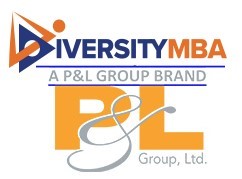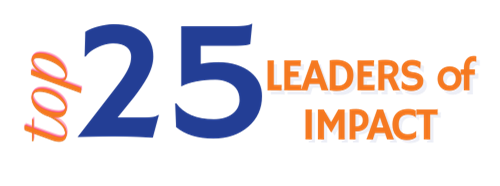What has your brand done for you lately? This is a question you should be asking yourself on a regular basis. The reason? Great personal brands, like great company and product brands, stand the test of time. But brand owners must know how to adapt to maintain the necessary appeal to captivate their target markets.
Building a personal brand is a methodical process, and it’s not a one-time event. It involves understanding and appreciating what you stand for, what you have to offer, and what your target audience wants. It requires that you get feedback upon feedback on how others perceive you, to determine if their perceptions mesh with how you’re attempting to portray yourself. It requires a lot of thinking and testing — thinking about what differentiates you from others and how to make it come to life, then testing how effective you are at it.
In revisiting your brand, it’s important to understand who your target market is – the people to whom you’re trying to sell your product. In personal branding, your product is yourself; and your audience consists of those who you need to impress, gain visibility and trust with, influence, and stay top of mind. Their needs and interests will tend to evolve over time. There’s also the possibility that your target audience may change completely. Depending on your role in your organization, your target audience may have started out as your manager and co-workers, and may have evolved to include other functional areas and internal and/or external clients. As your career matured, those you needed to impress may have extended to senior executives, boards of directors, and possibly the national or global community. Understanding who you’re trying to influence or “sell to” is a critical first step in revisiting your personal brand’s effectiveness.
How often should you revisit your brand? In general, it’s advisable to think about your goals and the direction your career at least annually. Performance development and planning discussions with your manager or an executive coach can facilitate this. Additionally, set aside some alone time to reflecting on all aspects of your life, and identify how the career piece of the puzzle is fitting in. Ask yourself whether or not your personal brand is effective, has failed, or has simply become stagnant. In all likelihood, you may need to start your self-evaluation with whether or not you even have a brand.
There are probably clearer markers when your brand has failed. However, you may need to do some additional testing to determine if your brand is effective or stagnant. A stagnant brand has no traction. While it may not necessarily work against you, it doesn’t work for you. Some indications of a stagnant brand include the fact that individuals are not reaching out to you (i.e., your product) as often. You seem to be overlooked when promotions, assignments, or networking opportunities come about. People aren’t aware of your contributions. You’re chosen for the same type of non-growth projects time and time again. Just like the careers of some actors, you may have been typecast.
Beyond the annual review of your brand, there are other times it should be revisited. These include when you have transitioned to a new role, moved to a new company or business unit, or received consistent feedback that does not connect with the impact you feel you’re making.
While a career setback may signal the need to reevaluate your brand, it doesn’t always mean you need to change it. You may only need to reinforce it and bring it back to life. Dig deep to understand what contributed to the setback. Was it performance related, skill related, or political? How much was within your control? When the answers begin to point to your overall visibility or lack thereof, your effectiveness in connecting with key stakeholders, or the level that people understand what you do and stand for, you have reason to suspect your personal branding efforts have missed their mark. But there are several assessment tools to help you in the process.
Authenticity and brand consistency are key. Your brand should reflect you and be authentic to your core values, passions, and strengths. But even great brands change over time. One very well-known personal brand is a case in point — talk-show host Oprah Winfrey. Her brand has evolved over the years yet stayed true to a consistent, overarching set of values. She has distinguished herself in the talk-show venue as covering inspiring and personal motivational stories when many other hosts jumped on the scandal bandwagon. She has distinguished herself as a humanitarian as her career and entrepreneurial efforts have evolved in her television and movie productions, philanthropic efforts, magazine, and satellite radio show. There is a thread of consistency that runs through all of them that creates a trust factor and level of predictability of what you will get when you engage Winfrey. Her audience knows what to expect and can rely on the product she delivers. But while reliable, her product has still evolved to meet the growing needs and interests of her target market – ordinary women from ordinary walks of lives. Naturally, Winfrey has a team of researchers that stay in tune with the changing pulse of her market. It’s important for all careerists and entrepreneurs to do the same. In contrast, Jerry Springer also has a distinguishable brand within the talk show industry. However, he’s going after a different target market and offering a different value proposition.
Fulfilling your brand promise is what creates a trust factor between you and your target audience that implies staying true to your brand. It’s as much about what you say no to as it is about what you say yes to. For example, if you’re promoting yourself as a great salesperson who knows how to bring people and opportunities together, but haven’t attended a networking event in the last six months, there’s a disconnect. If you’re trying to build or sustain a leadership brand, but avoid taking a stand on tough issues, there’s another one. Look for the gaps and determine how and where you need to adjust your behavior. Your brand is reflected in what you do; your personality, associations, surroundings; the sum total of you.
A few questions to ask yourself as you revisit your brand: What do I think my brand is and what do I want it to be? How has my industry changed in the last couple years? How have I changed? Is my brand authentic to my core values? How do others perceive me? Is my brand relevant to my target audience? How have their needs and interests changed in the last year?
Let’s assume your target audience is senior leaders. If your firm has just been acquired or merged with another, the key stakeholders in your audience may have shifted a bit, and their primary concerns, fears, and focus may have changed. Is your brand of “steady Eddie” still the one to promote, or will they be looking for a more maverick or change-focused brand? Know your audience; and emphasize the aspects of your brand that have relevance to it.
Engage others in the process of revisiting your brand. Let them know what type of image/brand you’re trying to convey and ask if that’s how they see you. Be open to candid feedback. Valuable lessons can be learned from those who have turned their situations around. Study great brands that have reinvented themselves.
Your brand, like your signature, is your differentiator. It sets you apart from the sea of professionals in the same line of work as you. It is your “wow” factor. It goes beyond your performance. It transcends your role. It communicates your value proposition. It keeps you top of mind when your target audience has a choice or decision to make about plum assignments, promotions, awards, retention, who to invest in, etc. With effective branding, you become the go- to person, and get matched with opportunities that align with your interests and goals. Individuals know what you value and uphold. This is brand clarity.
Becoming a household name among your target audience and being known for your unique value proposition gives you staying power and the ability to advance in your career. Like choosing between Coke and Pepsi, it gets down to finding that important differentiator about yourself that will appeal to your target market and create a brand legacy. If you don’t take the responsibility for deliberately shaping your brand, you may be branded by default.








